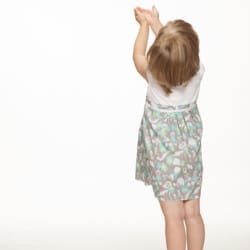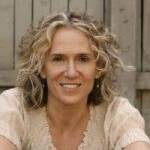 Alice Kaltman, parenting coach and founder of Family Matters NY, continues the discussion of the challenges, both real and perceived, of raising an only child, check out part one here.
Alice Kaltman, parenting coach and founder of Family Matters NY, continues the discussion of the challenges, both real and perceived, of raising an only child, check out part one here.
Collected Thoughts from Experienced Parents of Only Children
After last week’s post, Only the (NOT) Lonely, I thought it beneficial to share responses to the aforementioned concerns from experienced parents of only children who are now in their teens and twenties. I hope you find their words enlightening.
They will be spoiled:
“The first thing I think of is that only children get the rap of being spoiled. But I think that only happens when the two parents hover around the kid and create the impression that the world revolves around the child. WHICH IT DOESN’T!! So if the parents are interesting people with lives of their own, it will naturally give the kid a balanced view of the amount of attention one should expect to receive as a human. But I see this happening even when there are 2 or more children, so..it’s more of a state of mind.”
They will be lonely:
“The solitude that only children learn to develop is a valuable commodity. This solitude builds the imagination and develops creativity. It can be hours of “research” time. As long as the parents don’t overbook their children which is a real sickness among the child rearers of today!!
“Throughout a big part of his childhood, My son had one special friend who lived 3 blocks away. Different schools, but they spent time on the weekends together and holidays and sleep overs. Skating lessons, swimming lessons, we took turns taking them here and there. In fact, when he was 7 or 8, he started walking to the friend’s house by himself. Eventually they grew apart as they each developed school friendships.
“Before nursery school, we were part of a group that met 2 or 3 times a week with several moms and kids. My son felt part of a group and so did I.”
They will feel deprived of siblings:
“He only asked for a sibling for a very short period of time when he was 6 or 7. It passed quickly and was never very intense. He wanted a puppy for longer. And he got one!”
“Maybe because she’s an only, she is incredibly connected to her idea of extended family, even though she doesn’t see them all that much. She still loves all her cousins, aunts and uncles and grandparents with a charming intensity.”
They will be socially less adept and adaptable:
“It may be a coincidence, but most of our daughters friends are also only children. And we may be biased, but my husband and I agree that they are definitely the more interesting, well-adjusted friends that she has.”
“My son acted like a perfect kid as long as I wasn’t dragging him from kingdom come and gone, without a nap! Also, I sent him to a real pre- school pretty early (late 2’s) to help learn social skills and learn how to play/work with other kids since he didn’t have any sibs at home.”
“It may have been luck of the draw, but she has always been incredibly adept at entertaining herself. Her imagination is incredible, her focus and concentration awe-inspiring. Had she had the distraction of siblings, would she have such self-reliant skills? I dunno.”
“Her friendships are incredibly strong and important to her. She is the most loyal and trustworthy friend around.”
“I may be biased but I’ve also noticed that among his peer group, the kids I find the most creative and well-adjusted and interesting are also only children from intact and loving households.”
We will be too much friends and not enough parents:
“When our ‘only’ was little, he would wake up each morning and ask “so guys what should we do today?” We were his pals and his support system.”
We will hover and be too intense:
“Of course at some point he needed to stand on his own; have some freedom from the four set of eyes and two hyper-conscious brains watching him, counseling him and so on. All of the attention, adoring, or even just observing his every move became too intense as he grew up. My husband and I figured this out (with our son’s help) and now we try to divvy up the parenting roles. For example, one parent attends school conferences (unless our son requests otherwise) or takes charge of tracking homework. This way it’s not always two on one.”
“As a single, she got my undivided attention. This contributed partially to who she is today. I have spent the last 17 years tending her and finding resources that interest and encourage her.”
“If I had other kids, that would probably not have happened as much.”
We will be burdens in old age:
“Another aspect of this discussion is for what comes later. My mother died one year ago. It was horrendous. Just cleaning up her apt: 86 years worth of life, not to mention the emotional toll it took to deal with the whole process of sickness (Alzheimers!), death and aftermath. Although both my sisters are disabled and crazy, it was comforting not to be alone.”
“My daughter will have no one to share the inevitable feebleness and messy demise of both her parents. That’s sad and lonely.”
We will ache for more children for our own biological/social/familial needs:
“My husband and I both only wanted one child, maybe him a bit more adamantly than I in the beginning. Throughout our daughter’s early years, until the teen withdrawal years I never really wanted more. Of course when she started to pull away in a very age-appropriate way around age 13, I thought that it might be nice to have a younger one around to still think I was cool. But this was all me, my needs, my fantasy, not those of my daughter. And, now that she’s back among us, more engaged and less permanently petulant, I’m feeling less of that itch.”
They will feel awkward and different than peers w/ sibs:
“Children hate being only children until they get to be a certain age, then they love and appreciate it.”
“My daughter has had no strife, conflict or hardships. No siblings to struggle or compete against. Her identity has been formed differently from mine. As a middle sister, I became the girl who was NOT her older sister or younger sister. Who was I? (Actually, who am I now?)
It’s hard to say that my daughter suffered because she lacked those trials. Would she have been a more resilient, stronger woman? She’s pretty good in those departments right now. So who knows?”
“As one of four siblings, I always felt I was defining myself in relation or in opposition to the other three. I’m happy for my son that his self-definition, at least in a familial sense, is all his own.”
“I counted my lucky stars when I saw my friends with more than one constantly dealing with sibling rivalry and competition. Especially the ones with two or more boys. During the early years, it seemed to never let up. I was exhausted just watching. And with many of those families, those brothers continue as young adults to compete with each other in not such fabulous ways. Honestly, they’re not all that close.”
People will perceive us as weird or selfish or delusional for having only one:
“This wasn’t a deciding factor at the time, but if I were starting a family today, this would make me feel even more resolve to have only one: In today’s overpopulated and environmentally doomed world, it seems having more than one is socially, politically and personally suspect.”
“When my son was little, everyone asked, When are you having the next one?
This always struck me as a nervy question. It is so intimate, and none of their fucking business. It’s like touching my belly when I was pregnant. Grrr…”
See Part 1 of this article
 Alice Kaltman, L.C.S.W. has been working with parents and kids since 1988. In 2006, she co-founded Family Matters NYwith Sara Zaslow, L.M.S.W. FMNY is a parenting coaching service for Brooklyn and Manhattan families, providing support through home and office visits. Alice lives in Boerum Hill, Brooklyn with her teen-age daughter and husband, the sculptor Daniel Wiener. She also writes fiction for kids, and dances professionally in her spare (?) time. Write to Alice at info@familymattersny.com.
Alice Kaltman, L.C.S.W. has been working with parents and kids since 1988. In 2006, she co-founded Family Matters NYwith Sara Zaslow, L.M.S.W. FMNY is a parenting coaching service for Brooklyn and Manhattan families, providing support through home and office visits. Alice lives in Boerum Hill, Brooklyn with her teen-age daughter and husband, the sculptor Daniel Wiener. She also writes fiction for kids, and dances professionally in her spare (?) time. Write to Alice at info@familymattersny.com.